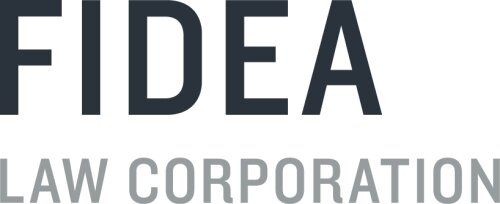Best Antitrust Lawyers in United States
Share your needs with us, get contacted by law firms.
Free. Takes 2 min.
Or refine your search by selecting a city:
List of the best lawyers in United States
About Antitrust Law in United States
Antitrust laws in the United States are designed to promote competition and protect consumers from unfair business practices. The foundation of these laws is the Sherman Antitrust Act of 1890, which prohibits monopolistic behavior and any agreement that restrains trade. Other important statutes include the Clayton Act and the Federal Trade Commission Act, which address specific practices that harm competition. These laws are enforced by the Federal Trade Commission (FTC) and the Antitrust Division of the Department of Justice (DOJ). The overall goal is to prevent anticompetitive mergers, market abuses, and to ensure that businesses operate in a manner that benefits the consumer.
Why You May Need a Lawyer
Individuals or businesses may need legal assistance in the field of antitrust for several reasons:
- Facing a lawsuit over alleged anticompetitive practices, such as price-fixing or monopolistic behavior.
- Being involved in a merger or acquisition that raises antitrust concerns.
- Participating in industry-specific practices that could potentially violate antitrust laws.
- Receiving an inquiry or investigation notice from the FTC or DOJ.
- Needing guidance on how to comply with antitrust regulations in business operations.
- Seeking defense against claims of antitrust violations.
Local Laws Overview
Antitrust laws in the United States can vary slightly from state to state. However, most states have adopted some form of the Uniform State Antitrust Act, which closely mirrors federal law. In addition to federal regulations, companies must be aware of state-specific laws that may impose additional requirements or penalties for antitrust violations. Key aspects include prohibitions against coordinated pricing, market allocation agreements, and other practices that reduce market competition. States may also have consumer protection laws that overlap with antitrust regulations, providing more avenues for enforcement and litigation.
Frequently Asked Questions
What is an antitrust violation?
An antitrust violation refers to any business activity that restricts competition, forms a monopoly, or unfairly manipulates market conditions. Common examples include price-fixing, bid-rigging, and monopolizing a market.
What actions can be classified as anti-competitive?
Actions such as collusion among competitors to set prices, dividing markets, or controlling production to drive up prices are classified as anti-competitive.
Can antitrust laws affect small businesses?
Yes, antitrust laws apply to businesses of all sizes. Small businesses can be involved in antitrust issues, especially if participating in agreements that restrict competition.
What are the penalties for violating antitrust laws?
Penalties can include fines, imprisonment, damages to affected parties, and injunctions prohibiting future violations. Corporations and individuals can both be held liable.
How does an antitrust investigation usually start?
An antitrust investigation may begin through consumer complaints, competitor reports, routine audits, or referrals from other government agencies.
What are some defenses against antitrust allegations?
Common defenses include demonstrating lack of intent, proving that the actions had pro-competitive benefits, or that the activities fell within a regulatory exemption.
Is it possible for a merger to face antitrust scrutiny?
Yes, mergers and acquisitions are scrutinized to ensure they do not reduce market competition. Parties involved may need to seek approval from the FTC and DOJ.
What is the role of the FTC in antitrust enforcement?
The FTC enforces antitrust laws alongside the DOJ, specifically monitoring business practices and compliance. They can initiate investigations and lawsuits against violators.
What is the difference between the Sherman Act and the Clayton Act?
The Sherman Act broadly prohibits monopolistic practices, while the Clayton Act targets specific practices like mergers and exclusive dealings that may lessen competition.
How can businesses ensure compliance with antitrust laws?
Businesses can ensure compliance by implementing antitrust compliance programs, training employees, and consulting with legal experts to review business practices regularly.
Additional Resources
Those seeking further information on antitrust matters can reach out to various resources:
- The Federal Trade Commission (FTC) offers guidance and resources on complying with antitrust laws.
- The Department of Justice (DOJ) Antitrust Division provides information and updates on enforcement actions.
- Various legal journals and publications offer case studies and analysis on antitrust laws.
- Professionals can consider joining organizations like the American Bar Association's Antitrust Section for networking and learning opportunities.
Next Steps
If you believe you need legal assistance with an antitrust issue, consider the following steps:
- Consult with a lawyer specializing in antitrust law to assess your situation.
- Gather all relevant documentation and information related to your case, such as contracts, emails, and business records.
- Evaluate the potential risks and liabilities associated with your situation.
- Consider seeking legal opinions or analyses if you're part of a business considering a merger or acquisition.
- Remain proactive in understanding your rights and obligations under U.S. antitrust laws.
- Engage with antitrust resources and educational opportunities to stay informed about compliance and best practices.
Lawzana helps you find the best lawyers and law firms in United States through a curated and pre-screened list of qualified legal professionals. Our platform offers rankings and detailed profiles of attorneys and law firms, allowing you to compare based on practice areas, including Antitrust, experience, and client feedback.
Each profile includes a description of the firm's areas of practice, client reviews, team members and partners, year of establishment, spoken languages, office locations, contact information, social media presence, and any published articles or resources. Most firms on our platform speak English and are experienced in both local and international legal matters.
Get a quote from top-rated law firms in United States — quickly, securely, and without unnecessary hassle.
Disclaimer:
The information provided on this page is for general informational purposes only and does not constitute legal advice. While we strive to ensure the accuracy and relevance of the content, legal information may change over time, and interpretations of the law can vary. You should always consult with a qualified legal professional for advice specific to your situation.
We disclaim all liability for actions taken or not taken based on the content of this page. If you believe any information is incorrect or outdated, please contact us, and we will review and update it where appropriate.
Browse antitrust law firms by state in United States
Refine your search by selecting a state.















